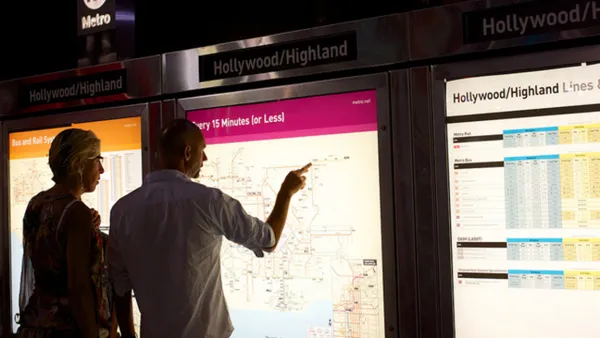Technology startup Parkifi seeks to use the Internet of Things to address the long-lamented problem of congestion created by drivers seeking parking.

Drivers in Denver can now use a smartphone app to locate open parking spaces with an accuracy rate that reportedly exceeds 99 percent.
Using a combination of "way-finding, data analytics and Internet of Things technologies," Parkifi equips parking spots with sensors that automatically communicate with the app via Bluetooth and radio, the Denver Post reports.
When the app launches, users can see potential parking spots in red, green and yellow based on a “confidence score” to show drivers the likelihood of finding a spot. However, press the little ParkiFi icon, and the driver is immediately navigated to the best spot.
Parkifi is partnering with the city of Denver, where it is based, to equip off-street lots with sensors. In early 2017, more features will be added, including the option to pay for parking within the app.
The Post notes that Denver has also pursued other tech-based approaches to parking and congestion, and sees possibilities for growth in that space:
By combining IoT sensors that communicate with mobile apps, operators can also collect data on how long spots stay filled, the lot’s busiest hours and returning patrons. Parking managers can use that big data to market to or reward customers and use the technology to automatically reroute drivers or change prices based on demand.
FULL STORY: ParkiFi mashes IoT and data analytics to offer better sense of where to park downtown

National Parks Layoffs Will Cause Communities to Lose Billions
Thousands of essential park workers were laid off this week, just before the busy spring break season.

Retro-silient?: America’s First “Eco-burb,” The Woodlands Turns 50
A master-planned community north of Houston offers lessons on green infrastructure and resilient design, but falls short of its founder’s lofty affordability and walkability goals.

Delivering for America Plan Will Downgrade Mail Service in at Least 49.5 Percent of Zip Codes
Republican and Democrat lawmakers criticize the plan for its disproportionate negative impact on rural communities.

Test News Post 1
This is a summary

Test News Headline 46
Test for the image on the front page.

Balancing Bombs and Butterflies: How the National Guard Protects a Rare Species
The National Guard at Fort Indiantown Gap uses GIS technology and land management strategies to balance military training with conservation efforts, ensuring the survival of the rare eastern regal fritillary butterfly.
Urban Design for Planners 1: Software Tools
This six-course series explores essential urban design concepts using open source software and equips planners with the tools they need to participate fully in the urban design process.
Planning for Universal Design
Learn the tools for implementing Universal Design in planning regulations.
EMC Planning Group, Inc.
Planetizen
Planetizen
Mpact (formerly Rail~Volution)
Great Falls Development Authority, Inc.
HUDs Office of Policy Development and Research
NYU Wagner Graduate School of Public Service




























